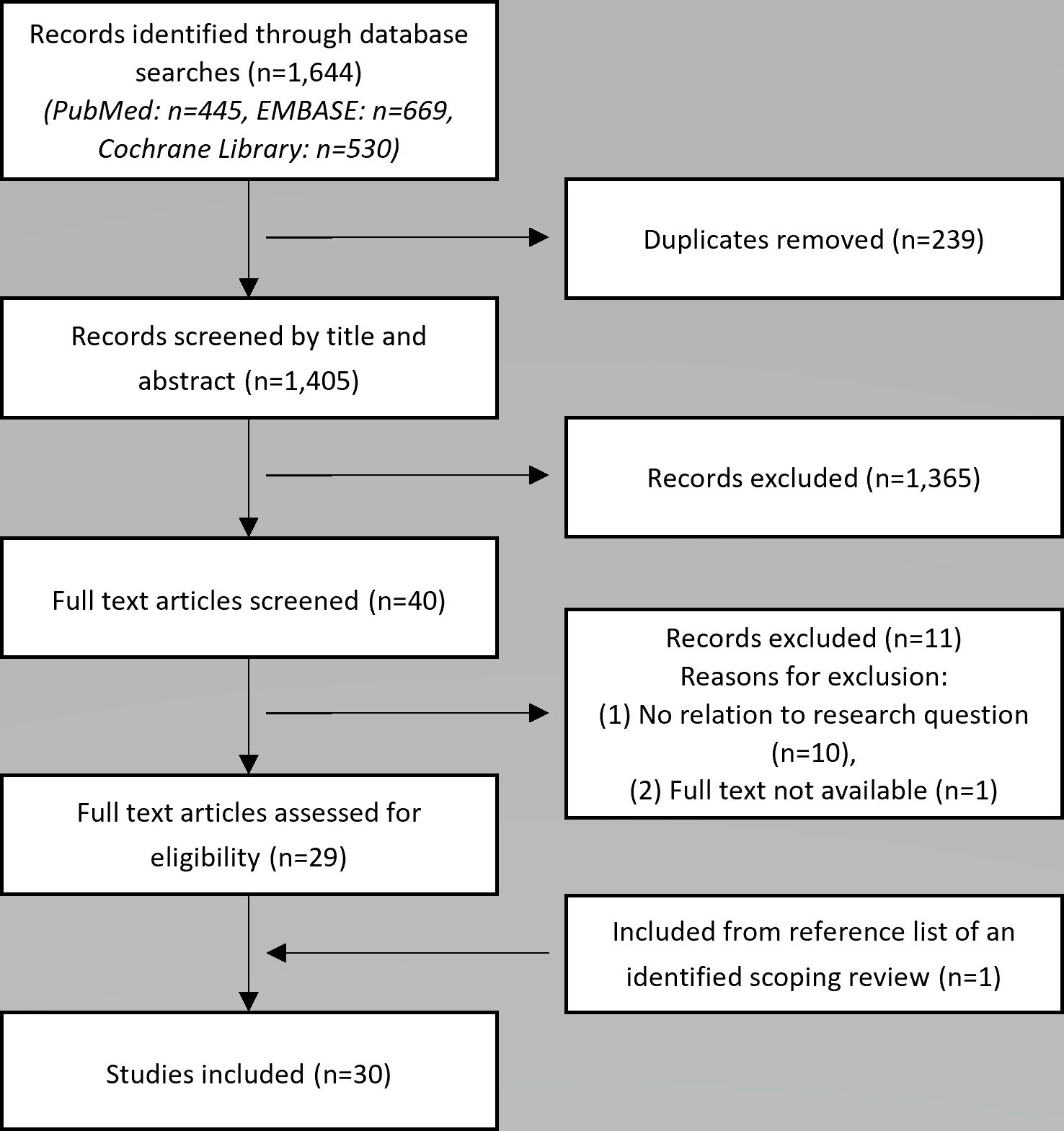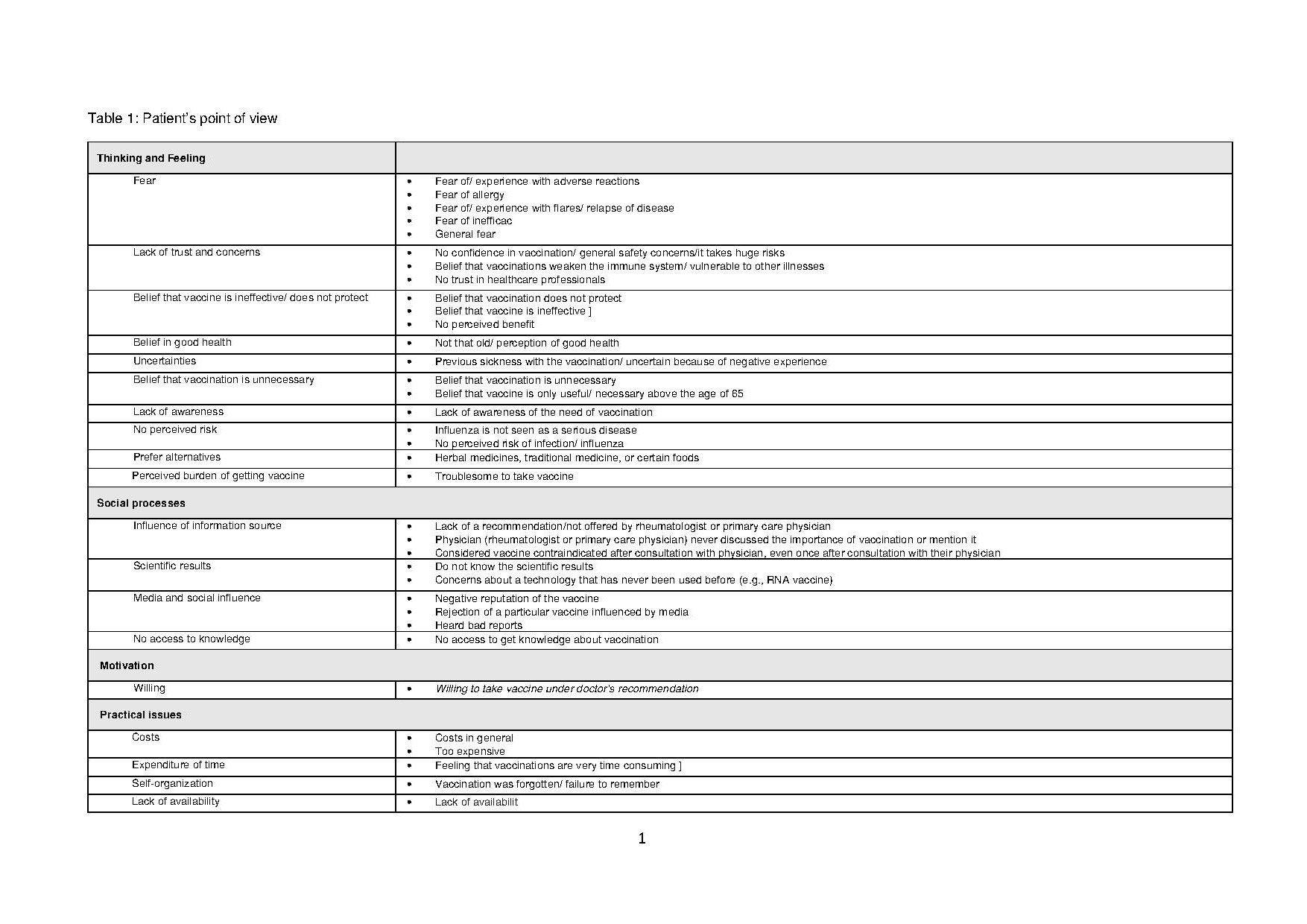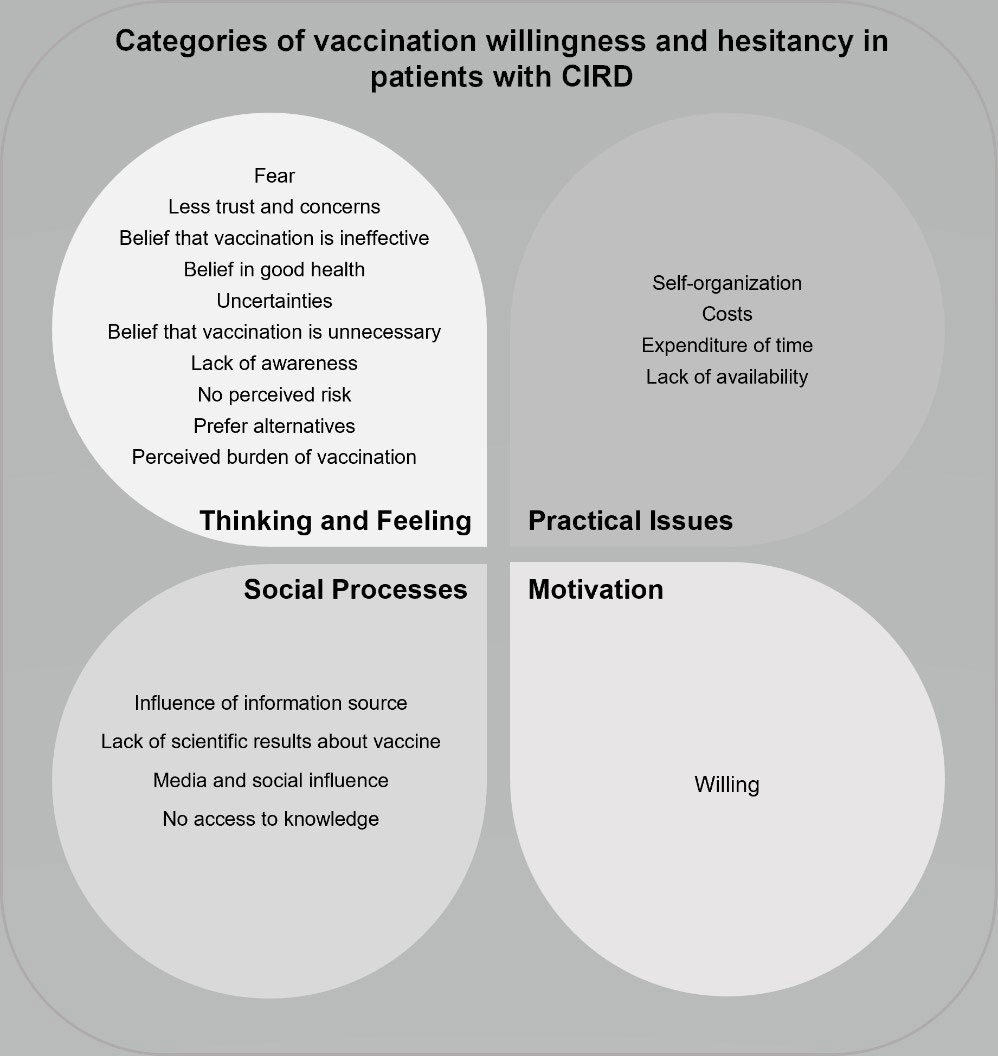Session Information
Date: Saturday, November 12, 2022
Title: Health Services Research Poster I: Lupus, RA, Spondyloarthritis and More
Session Type: Poster Session A
Session Time: 1:00PM-3:00PM
Background/Purpose: Patients with chronic inflammatory rheumatic diseases (CIRD) remain underrepresented in receiving vaccinations despite being disproportionately affected by infectious complications. The aim of our study was to systematically review the literature regarding vaccination willingness and vaccination hesitancy in CIRD patients with focus on the perspective of patients and physicians. .
Methods: A scoping review was conducted in PUBMED, EMBASE and the Cochrane Library through 2021. Study selection was performed by two independent reviewers, data were extracted using a standardized form and risk of bias was assessed using instruments from the McMaster University. Identified barriers and hurdles were synthesized by categorizing them into the WHO’s Measuring Behavioural and Social Drivers of Vaccination (BeSD) conceptual model.
Results: The search yielded 1,644 hits of which 30 publications were included (cross-sectional studies based on interviews (n=27) and intervention studies (n=3)) (Figure 1). The majority of studies reported barriers to influenza and pneumococcal vaccination only (n=9) or in combination with another vaccination (n=8) from the patients` perspective. Only one study assessed the view of rheumatologists. Patients mainly mentioned behavioral and social factors that negatively influenced their willingness to be vaccinated (Table 1 and Figure 2) while physicians saw organizational deficits as major barriers. Coverage of domains matched to the BeSD model suggests a lack of awareness of infection risk by both patients and physicians.
Conclusion: The view of vaccination in CIRD patients diverges between patients and rheumatologists. Our results show that in-depth counseling on vaccines is important for patients, whereas physicians need support in implementing specific immunization recommendations. The themes identified provide a starting point for future interventions to improve vaccine rates in CIRD patients.
To cite this abstract in AMA style:
Neusser S, Neumann A, Speckemeier C, zur NIeden P, Schlierenkamp S, Walendzik A, Karbach U, Andreica I, Vaupel K, Baraliakos X, Kiltz U. Facilitators and Barriers of Vaccine Uptake in Patients with Chronic Inflammatory Rheumatic Disease: A Scoping Review [abstract]. Arthritis Rheumatol. 2022; 74 (suppl 9). https://acrabstracts.org/abstract/facilitators-and-barriers-of-vaccine-uptake-in-patients-with-chronic-inflammatory-rheumatic-disease-a-scoping-review/. Accessed .« Back to ACR Convergence 2022
ACR Meeting Abstracts - https://acrabstracts.org/abstract/facilitators-and-barriers-of-vaccine-uptake-in-patients-with-chronic-inflammatory-rheumatic-disease-a-scoping-review/



